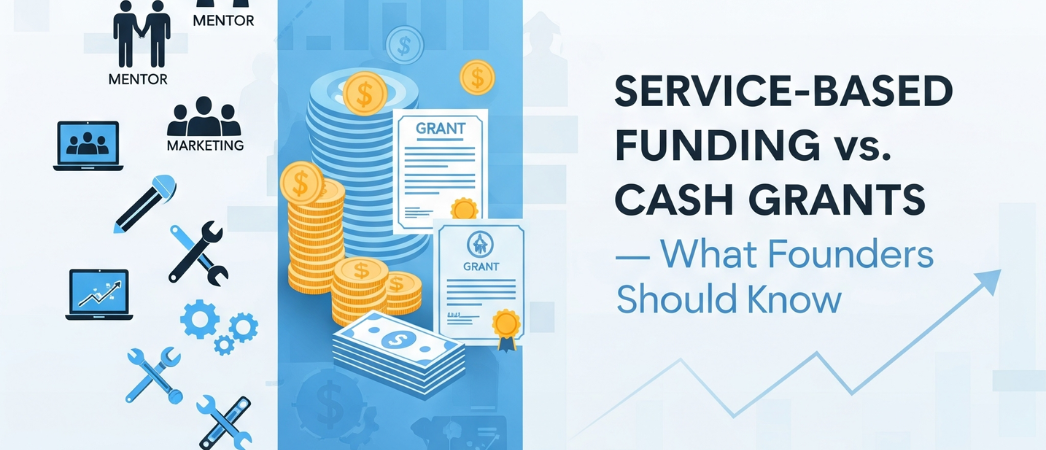- Submit your startup idea on StartupFundingIndia to connect with potential investors and gain funding opportunities.
- I would like to submit my startup idea on StartupFundingIndia to explore funding and investor connections.

Admin | 14th Jul 2025
In an ever-changing world of start-ups, funding is the fuel that helps convert innovative ideas into action. Founders generally pursue cash grants or an equity-based investment path to build and scale their businesses. Funding is undoubtedly the goal of Startup Funding India (SFI), but SFI proposes a new way for startups to fund their journey slightly differently with a service-based funding model and a more active approach to funding support. So, for founders, what does this mean, and how does this differ from just obtaining cash?
Most startup founders begin the process of funding their startup with cash grants. Cash grants are funds provided with no obligation to repay the founder or funds that you exchange a monetary amount for equity (more or less a loan). Therefore, these funds intend to hire a team, build products, run marketing-related processes, or work through a regular cost of operations.
While this sounds amazing, there are several potential challenges with cash grants:
• Difficult to Get: Every startup wants cash grants because they are hard to beat, which means they are extremely competitive. Many startups apply, and very few are given cash grant funding.
• Short-Term Solution: Cash grants often become a one-time influx of cash, not a pathway to a prospect of ongoing growth for the business.
• No Strategic Support: You would have cash, but not the other associated mentoring, support, or services for successfully utilising or managing business relationships with others.
Startup Funding India (SFI) - the platform that changes the funding landscape forever. Rather than writing a cheque to startups, SFI brings high-value professional services directly to start-ups in services such as marketing, technology development, legal, human resources, etc. The best part? You receive funding in service based on how many start-ups upvotes we receive from the community.
This is why service-based funding is prominent:
• Services rather than cash: Startups receive exactly what they need to scale by getting professional services from experts that are easily accessible, rather than wasting valuable days looking for agencies or engaging expensive freelancers.
• Proof of community interest: With the SFI platform, every upvote is equal to ₹100 in services. This model not only demonstrates funding but also indicates an early indication of market interest.
• No dilution, no debt to the provider: Founders keep total control of their start-ups while receiving value from professional services. No dilution of equity, no debt servicing, only support.
• Focused Growth: Getting funding via ready-to-go services allows start-ups access to what they need now, rather than worrying about budgets or hiring.
It depends on the time and stage of your startup. If you're more established with a solid business model and just need working capital, then cash grants may suit you. However, if you're an early-stage startup still trying to build your foundation, service-based funding tends to be more effective.
Why, because the majority of startups do not fail due to lack of money, they fail due to lack of execution. Having the right support systems in marketing, tech, operations, etc., has a significant impact.
Service-based funding is not just an option; it is a better option for many startups. Platforms like SFI are opening a path for founders with ambition, those looking for more than simple funding; they are seeking partners, resources, and guidance.
So if you're a founder interested in scaling your startup, consider service-based funding through SFI as the leverage your startup might need. Get your upvotes, get your services, and get to work.